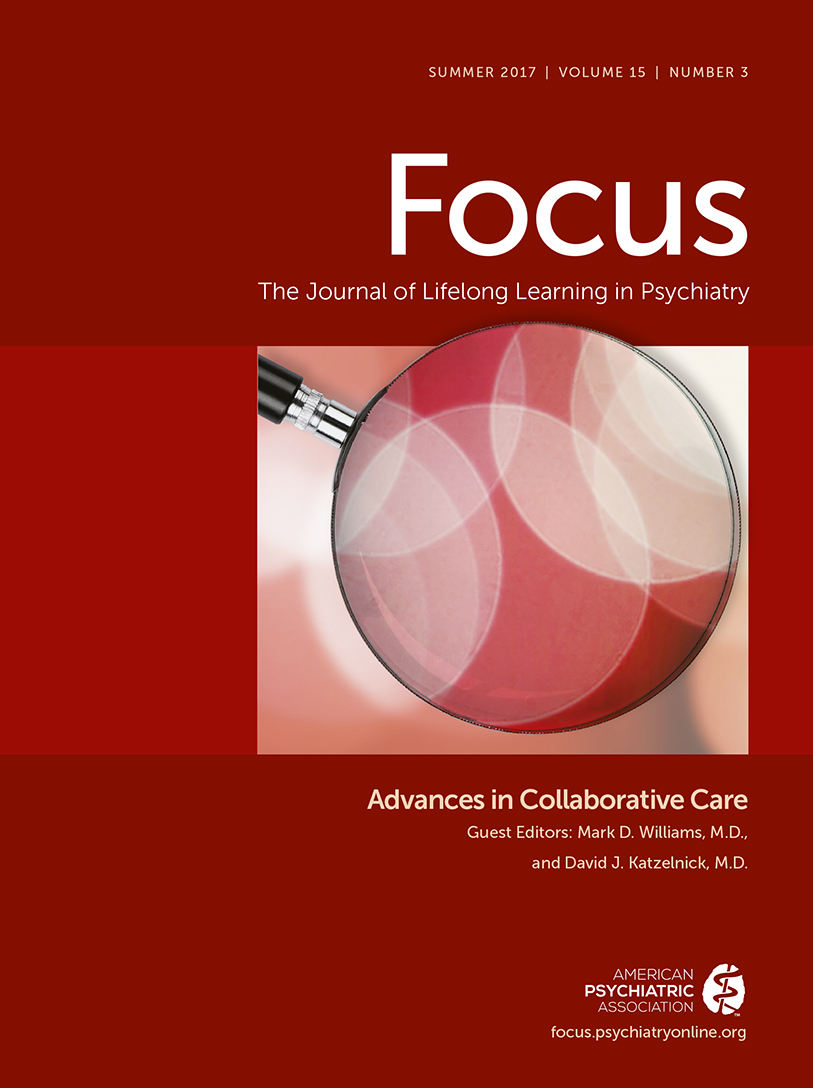Evidence-Based Psychotherapy in Primary Care
Abstract
The functional and financial effects of untreated psychiatric disorders within primary care have led to the development of novel service delivery models to improve access to high-quality, evidence-based mental health treatments. Cognitive-behavioral therapy (CBT) is an efficacious and effective psychotherapeutic approach for treating a broad range of mental health conditions. CBT is a practical, skill-building approach that emphasizes self-efficacy and self-management of symptoms while working toward defined and measurable treatment goals. Although significant barriers to the full dissemination of CBT remain, collaborative care and integrated behavioral health programs embedded within primary care clinics can enhance treatment outcomes by using CBT. Identifying core CBT principles used in the treatment of anxiety (e.g., exposure), depression (e.g., behavioral activation), and insomnia (e.g., stimulus control) is an important step toward improving the quality of care for these conditions. High-impact, low-intensity CBT programs hold promise in improving access to this evidence-based treatment across a broader population.



